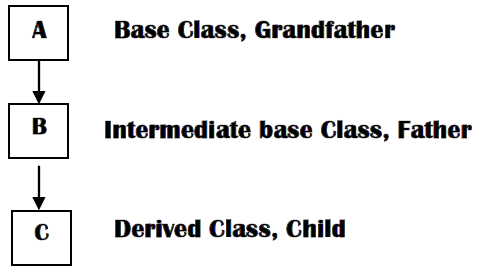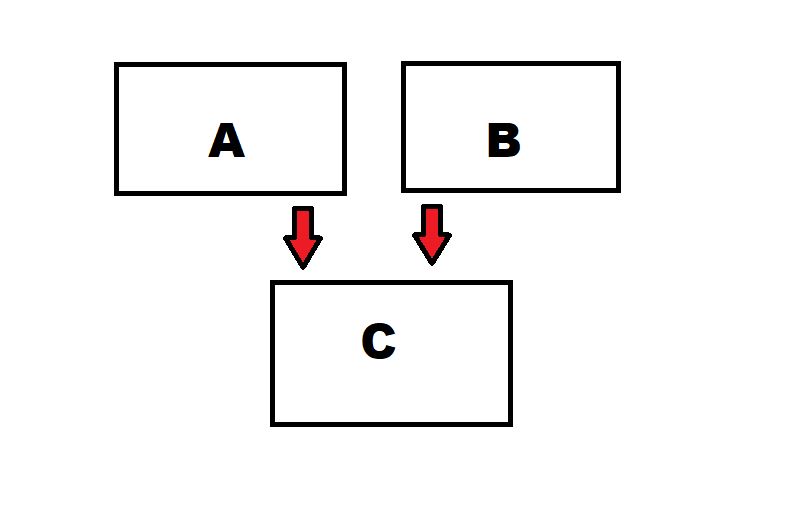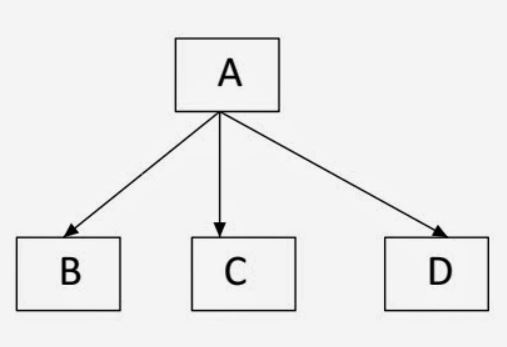C++ Types of Inheritance
As we already know that inheritance is one of the most important pillar
of object oriented programming.
C++ allows us to implement various inheritance models in a program.
These inheritance models are,
- Multilevel inheritance
- Multiple inheritance
- Hierarchical inheritance
Lets discuss them one by one.
Multilevel Inheritance
According to this model we can derive a class from a derived class
which is derived from another derived class or base class. This forms
layers of inheritance.

Syntax for multilevel inheritance
class A
{
... .. ...
};
class B: public A
{
... .. ...
};
class C: public B
{
... ... ...
};
In above syntax, we are deriving class B from base class A and from B
class C is derived.
Lets take an example for better understanding
Example 1:
#include <iostream>
using namespace std;
class A
{
public:
void display()
{
cout<<"this is base class";
}
};
class B : public A
{
};
class C : public B
{
};
int main()
{
C obj;
obj.display();
return 0;
}
Output:
this is base class
in this program, we have three classes A,B and C deriving from each
other respectively, when we called function of class C, we got function
of A. this due to multilevel inheritance.
Multiple Inheritance
According to this model, a derived class can be derived from multiple
base classes.

Lets understand it with an example
Example 2:
#include <iostream>
using namespace std;
class A
{
public:
A() { cout << "A's constructor" << endl; }
};
class B
{
public:
B() { cout << "B's constructor" << endl; }
};
class C: public B, public A
{
public:
C() { cout << "C's constructor" << endl; }
};
int main()
{
C c;
return 0;
}
Output:
B’s constructor
A’s constructor
C’s constructor
in the above program, you can see both the classes A and B are
inherited in class C.
Note: look at the order class C: public B, public A, that is why
functions are inherited in the order as given in output.
Hierarchical Inheritance
According to this model, more than one classes can be derived from the
base class.

Syntax of hierarchical inheritance is given below
class A {
... .. ...
}
class B: public A {
... .. ...
}
class C: public A {
... .. ...
}
class D: public A {
... .. ...
}



